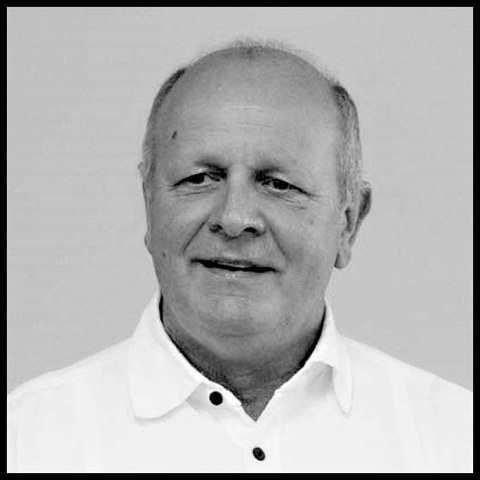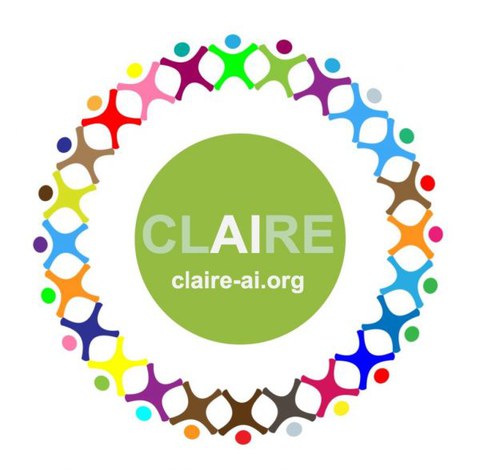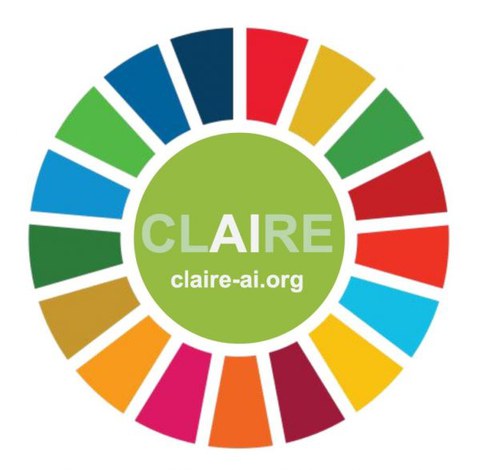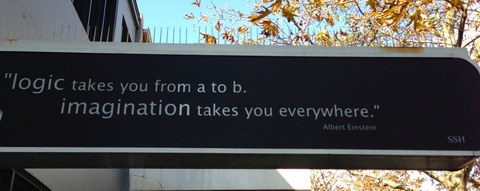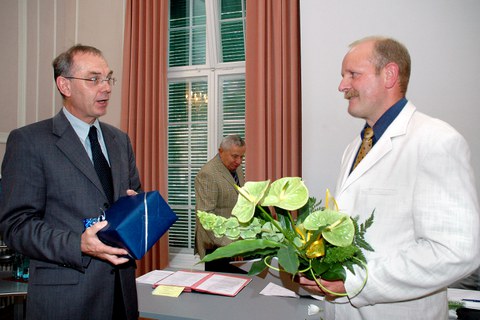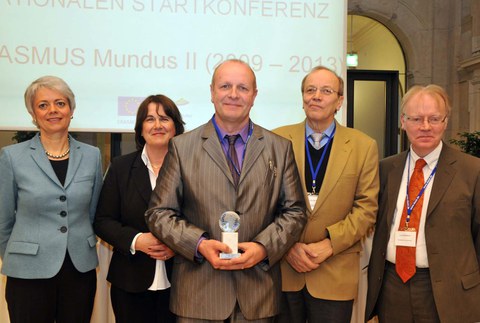Professor
Prof. Dr. Steffen Hölldobler passed away on May 9, 2023, after a long and serious illness. We mourn the loss of a respected colleague and dedicated teacher. He was head of the Knowledge Representation and Reasoning Group group.
Research Interests
Logic and Deduction. Logic Based Knowledge Representation and Reasoning. Logic and Cognitive Science. Logic and Connectionist Systems.
Short Biography
After graduating in Computer Science Steffen Hölldobler joined Alan Robinson's Logic Programming Research Group at the Syracuse University, USA, as a visiting research associate in 1983. During this visit he became interested in the combination of logic and functional programming. Focusing on equational logic programming he received a Dr.rer.nat. from the University of the Federal Armed Forces at Munich, Germany, in 1988.
Shortly afterwards he joined Wolfgang Bibel's Intellectics group at the TU Darmstadt, Germany. Coming across various approaches on planning he developed a new calculus for deductive planning based on an equational logic together with Josef Schneeberger. This approach has been further developed. It is now known under the name Fluent Calculus and is regarded as one of the major approaches in the area of reasoning about situations, actions and causality.
In 1989 he was offered a one-year fellowship as a postdoc at the International Computer Science Institute (ICSI) at Berkeley, USA. There he was introduced to connectionism by Jerry Feldman. His research at the ICSI finally led to a postdoctoral thesis (Habilitation) on Automated Inferencing and Connectionist Models in 1993. Based on this thesis he developed the so-called Core method for translating semantic operators associated with logic programs into connectionist networks jointly with Yvonne Kalinke.
In the same year he became Professor for Knowledge Representation and Reasoning in the Computer Science Department at the Technische Universität Dresden. His research interests include logic and deduction, logic programming, knowledge representation and reasoning, cognitive science as well as connectionism. Recently, he has developed a new, multi-valued, and nonmonotonic paradigm for human reasoning called the Weak Completion Semantics.
He is the author of four monographs, more than 100 scientific articles, and has edited more than 30 publications.
He is also assigned to the North Caucasus Federal University in Stavropol, Russian Federation, as a guest professor.
Roles
- Head of the Knowledge Representation and Reasoning Group
- Head of the nomination committee of the PhD prize of the Gesellschaft für Informatik e.V
Some Links
Selected Publications
- Foundations of Equational Logic Programming. Lecture Notes in Artificial Intelligence 353: 1989
------ my PhD thesis
- A New Deductive Approach to Planning. New Generation Computing 8, 225-244: 1990 (together with Josef Schneeberger)
------ the first paper on the fluent calculus
- Towards a New Massively Parallel Computational Model for Logic Programming. In: Proceedings of the ECAI94 Workshop on Combining Symbolic and Connectionist Processing, 68-77: 1994 (together with Yvonne Kalinke)
------ the first paper on neural-symbolic integration and the core method
- Logik und Logikprogrammierung. Band 1: Grundlagen. Synchron Publishers, Heidelberg: 2009
------ my textbook on logic
- Logik und Logikprogrammierung. Band 2: Aufgaben und Lösungen. Synchron Publishers, Heidelberg: 2011(together with Sebastian Bader, Bertram Fronhöfer, Ursula Hans, Pascal Hitzler, Markus Krötzsch und Tobias Pietzsch)
------- many exercises with solutions on logic
- Logic Programs under Three-Valued Lukasiewicz's Semantics. Lecture Notes in Computer Science 5649, 464-478: 2009 (together with Carroline D. P. Kencana Ramli)
------ the first paper on the weak completion semantics
- A Computational Logic Approach to Human Syllogistic Reasoning. In: Proceedings of the 39th Annual Conference of the Cognitive Science Society, 883-888: 2017 (together with Ana Oliviera da Costa, Emmanuelle-Anna Dietz Saldanha, and Marco Ragni)
------ the weak completion semantics performs better than 12 cognitive theories
Recent Publications
- When are Humans Reasoning with Modus Tollens? Proceedings of the Annual Conference of the Cognitive Science Society 43, 2337-2343: 2021 (together with Marcos Cramer and Marco Ragni)
- Modeling Human Reasoning about Conditionals. Accepted NMR 2021 (together with Marcos Cramer and Marco Ragni)
- On Disjunctions and the Weak Completion Semantics. Accepted Virtual MathPsych/ICCM 2021 (together with Islam Hamada)
- Our Themes on Abduction in Human Reasoning: A Synopsis. Studies of Applied Philiosphy, Epistemology and Rational Ethics 59, Springer Nature Switzerland: 2021 (together with Emanuelle-Anna Dietz Saldanha and Luís Moniz Pereira)
- The Weak Completion Semantics and Counter Examples. Proc. Formal and Cognitive Reasoning, CEUR Workshop Proceedings Vol 2961, 60-73: 2021 (together with Meghna Bhadra)
- Ausgezeichnete Informatikdissertationen 2020. Lecture Notes in Informatics D21, Gesellschaft für Informatik: 2021
- Humans Reason Sceptically. Accepted Handbook of Abductive Cognition 2022 (together with Meghna Bhadra, Islam Hamada, and Luís Moniz Pereira)
- The Weak Completion Semantics and Counterexamples. accepted Journal of Applied Logic 2022 (together with Meghna Bhadra)
- Identification of Noise Variables in Singular Decisions using Counterfactual Reasoning. Accepted IJCAI-ECAI 2022 Workshop Cognitive Aspects of Knowledge Representation (together with Meghna Badra)
All Publications are listed under Research Gate
Awards
- Teaching Award 2004 of the Freunde und Förderer der TU Dresden e.V.
- Dresden Congress Award 2006
- Erasmus Mundes Award 2009 of the DAAD
- Dresden Congress Award 2016
Projects
- Local Coordinator of the EU-project PLANT - Parallel Deductive Plan Generation; (1989 - 1991)
- Principal Investigator of the DFG-project MPS - Massively Parallel Reasoning within the research focus programm Deduction (1992 - 1997)
- Principal Investigator of the DFG-project LOKAS - Situations, Actions, and Causality; (1995 - 1999)
- Head of the DAAD-supported International Masters Programme in Computational Logic (1997 - 2002)
- Principal Investigator of the project ISeC - Intelligent Systems in E-Commerce - in cooperation with hybris GmbH, Munich (2001 - 2003)
- Head of the DAAD-exchange programme Robot Learning and Cognitive Robotics with the University of Birmingham (2002 - 2004)
- Head of the DAAD-supported International Quality Network Rational Mobil Agents with partners in Germany, Netherlands, France, Great Britain, Portugal, Hungary, Ukraine, Russia, Italy, Indonesia, USA, and Australia (2001 - 2003)
- Head of the work programme Education and Training within the EU-Network of Excellence in Computational Logic CoLogNet (2002 - 2005)
- Head if the DAAD-exchange programme Structures and Deduction with INRIA Nancy (2003 - 2005)
- Head of the DAAD-supported German Summer Academy on Proof Theory, Computation, and Complexity (2003)
- Head of the DAAD-dual master degree programme in Computational Logic with the Universidade Nova de Lisboa (2003 - 2005)
- Head of the DAAD-supported German Summer Academy on Proof Theory and Automated Theorem Proving (2004)
- Pricipal investigator of the EU-ASIA LINK project Computational Logic as a Foundation for Computer Science and Intelligent Systems (2004 - 2007)
- Head of the European Master's Program in Computational Logic supported by the EU within the ERASMUS MUNDUS and the ERASMUS+ program (2004 - 2019)
- Head of the DAAD-supported German Summer Academy on Logic Based Knowledge Representation (2005)
- Head of the DAAD-supported German Summer Academy on Knowledge Structures (2006)
- Head of the DAAD-exchange programme Analyticity and Proof Search for Modal Logics in Deep Inference with the University of Bath, EUR (2006 - 2008)
- Head of the DAAD-supported German Summer Academy on Computational Logic and Cognitive Science (2008)
- Head of the DAAD-supported International Summer School on Computational
Logic at the University of Indonesia at Jakarta (2008) - Principle investigator of the DAAD-supported EM II project on European PhD programs (2008)
- Head of the DAAD-supported International Summer School on Computational Logic at the Islamic University of Indonesia at Yogyakarta (2010)
- Head of the DAAD-supported International PhD Program in Computational Logic (2010 - 2014)
- Head of the DAAD-supported International Summer School on Computational Logic at the Udayana University, Bali (2012)
- Head of the DAAD-supported German Summer Academy on Semantic Web--Ontology Languages and their Use (2013)
- Head of the DAAD-supported International Summer School on Computational Logic and its Applications at the Hue University of Eduction, Vietnam (2014)
- Head of the DAAD-supported German Summer Academy on Reasoning (2015)
- Principle Investigator of the DFG-project Parallel SAT (2015-2020)
- Head of the DAAD-supported International Summer School on Computational Logic at the King Mongut's Institute of Technology Ladkrabang, Thailand (2016)
- Head of the DAAD-supported German Summer Academy on Bridging the Gap between Human and Automated Reasoning (2017)
- Head of the DAAD-supported International Summer School on Computational Logic at the Mongolian University of Science and Technology, Mongolia (2019)
- Head of the DAAD-supported Double Degree Master's Program in Computer Science with the North-Caucasus Federal University and the University of Indonesia at Jakarta (2019-2021)
- Head of the DAAD-supported International Summer School on Computational Logic at the Stellenbosch University, South Africa (2020); cancelled due to the Corona pandemics
- Local Coordinator of the EU-supported Master's Program in Artificial Intelligence for Careers in Europe (since 2021)
Third Party Funding Received So Far more than 12 Million EUR
